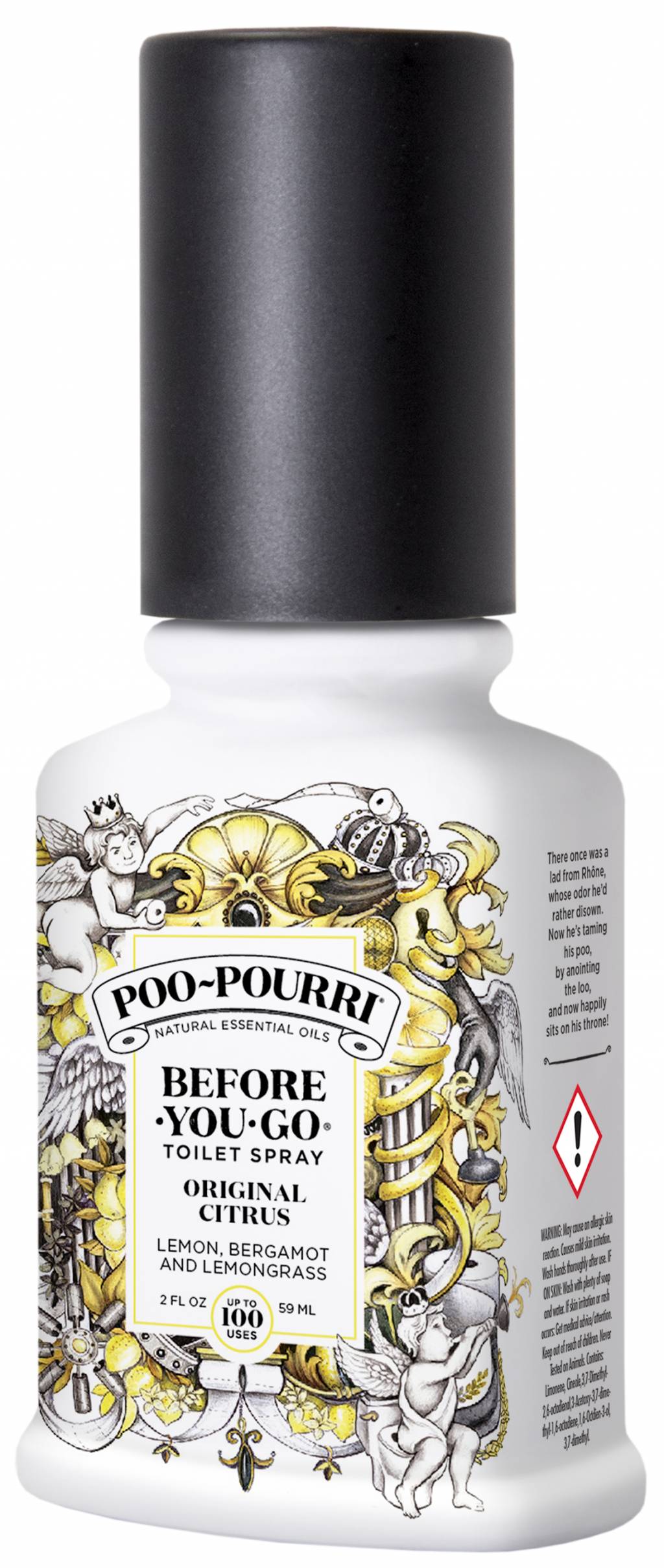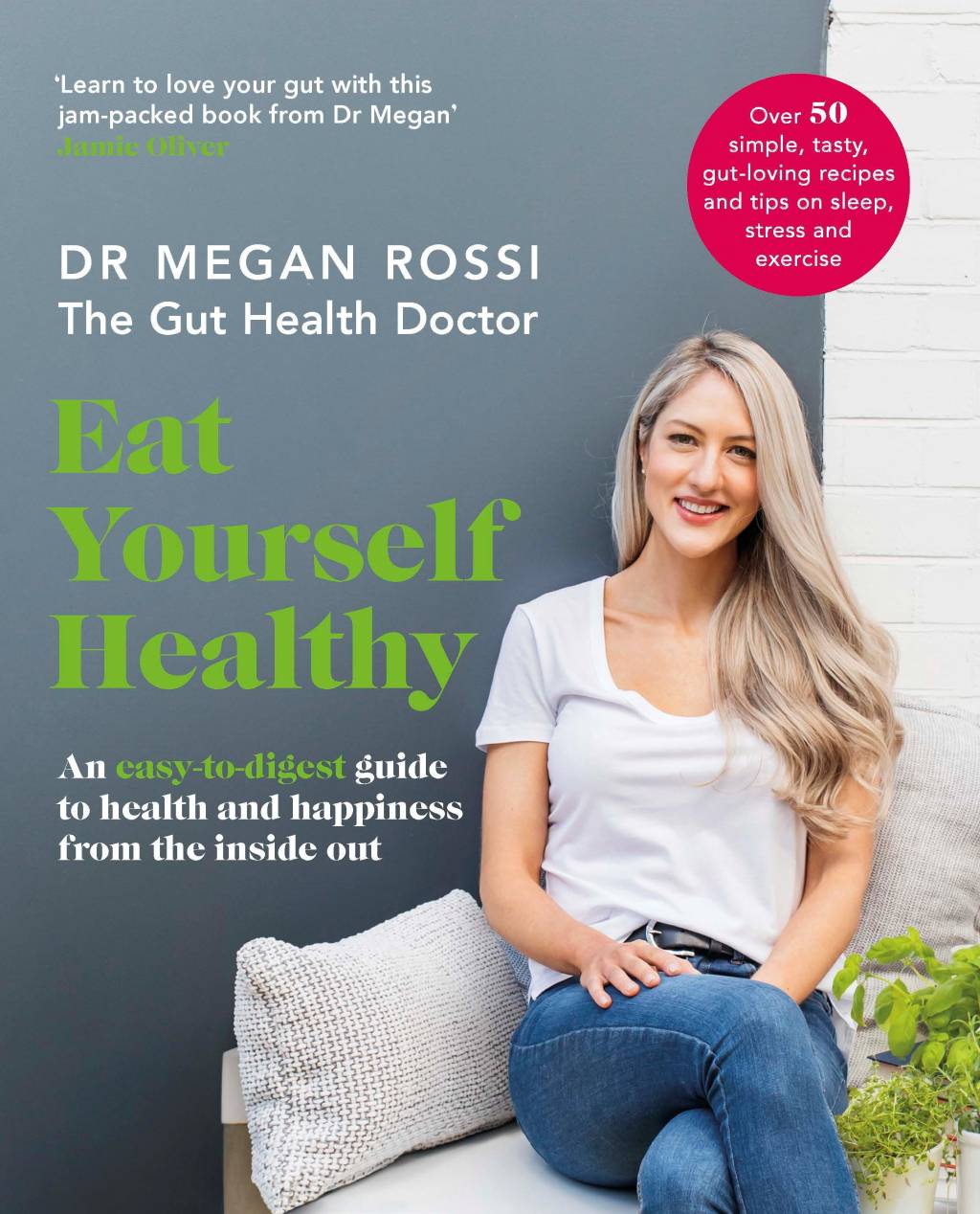 We hear from dietitian Dr Megan Rossi (PhD, RD) who shares her top tips on improving your gut health and overcoming ‘poop-anxiety’!
We hear from dietitian Dr Megan Rossi (PhD, RD) who shares her top tips on improving your gut health and overcoming ‘poop-anxiety’!
Many of us deal with stress daily – but did you know that this can have a direct impact on your gut? It’s all down to the gut-brain axis, the constant two-way communication between our gut and our brain.
No two people have the same gut or gut microbiota (or as I like to call our GM, the trillions of microbes we house in our digestive tract) and what’s right for you will depend on where your gut health is currently. While there’s no ‘ideal’ one-size-fits-all for everyone, there is a GM that’ll be just right for you.
If you look after your gut health with plenty of plant-based foods, by practising mindfulness and sleeping well, among other strategies, you’re likely to cultivate your own optimal GM…
Dr Megan Rossi’s tips to look after your gut health…
1. Eat a wide variety of plant-based foods
I recommend aiming for 30 different types of plant-based foods every week, including fruit, vegetables, wholegrains, legumes, nuts and seeds. The more plant-based variety in your diet, the more diverse range of gut microbes, which is linked to the health of pretty much every organ in the body, including your skin, heart and brain.
2. Go for inclusion, not restriction.
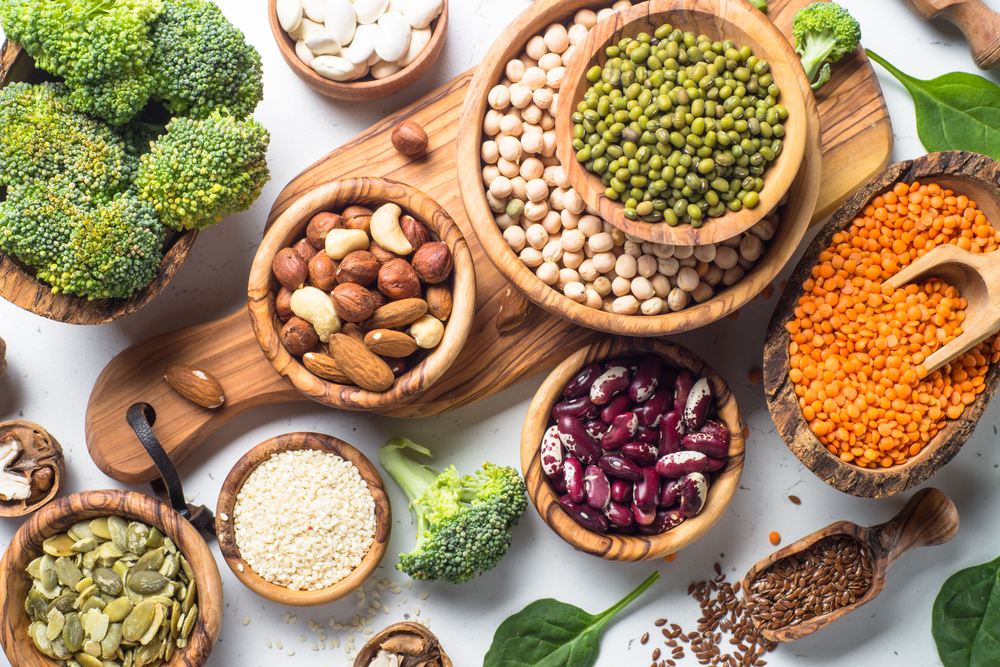 Looking after your gut health is all about inclusivity and moderation, so it’s best to avoid restrictive diets (I would never recommend cutting out carbohydrates!). Overly restrictive diets can not only starve your gut bacteria and put you at risk of nutritional deficiencies, but can also create a damaging relationship with food.
Looking after your gut health is all about inclusivity and moderation, so it’s best to avoid restrictive diets (I would never recommend cutting out carbohydrates!). Overly restrictive diets can not only starve your gut bacteria and put you at risk of nutritional deficiencies, but can also create a damaging relationship with food.
There is a common myth that you need to cut out food groups, ‘detox’ and ‘cleanse’ to look after your gut. The biggest myth about the gut is that you need to have a restrictive diet to look after it. All of the misinformation out there about ‘detox teas’ and cutting out foods for gut health can be very damaging.
You do not need to drink green juice, go vegan or do a ‘detox’ for good gut health. Looking after your gut (and overall health) is all about inclusivity, moderation and getting plenty of plant diversity. It’s far more about what you include than what you exclude.
Make sure you’re eating nutritious, balanced meals with plenty of fibre. Fibre is a type of carbohydrate that nourishes gut microbes (it’s their favourite food) and keeps them healthy. Oats, lentils, chickpeas, wholegrains, nuts and seeds are all great sources of fibre. Frozen veggies and fruit all count too.
3. Move your body and get outdoors.
 Exercise helps to regulate your pooping habits and increases the diversity of your gut microbes, which is linked to better overall health. Sustained exercise is key for good gut health, so move your body regularly, getting your heart rate up for at least 30 mins most days. Whether it’s power walking, gut-directed yoga or just dancing in your kitchen, movement really can help to stimulate your bowels.
Exercise helps to regulate your pooping habits and increases the diversity of your gut microbes, which is linked to better overall health. Sustained exercise is key for good gut health, so move your body regularly, getting your heart rate up for at least 30 mins most days. Whether it’s power walking, gut-directed yoga or just dancing in your kitchen, movement really can help to stimulate your bowels.
4. Boost your sleep quality and de-stress.
 Sleep and stress can have a big impact on gut health. To help combat stress and rewire the gut-brain axis, just 15 minutes a day of meditation (or using a mindfulness app) has been shown to make a significant difference after 8 weeks.
Sleep and stress can have a big impact on gut health. To help combat stress and rewire the gut-brain axis, just 15 minutes a day of meditation (or using a mindfulness app) has been shown to make a significant difference after 8 weeks.
Aim for 7-9 hours sleep every night – try improving your sleep quality by using the sleep hygiene protocol from my colleagues, which I share in my book Eat Yourself Healthy. This includes strategies such as setting a regular bedtime routine with relaxation exercises, limiting caffeine after 3pm and scheduling ‘worry time’ during your day to write down your thoughts and free up your head space before bed.
5. Perfect your position
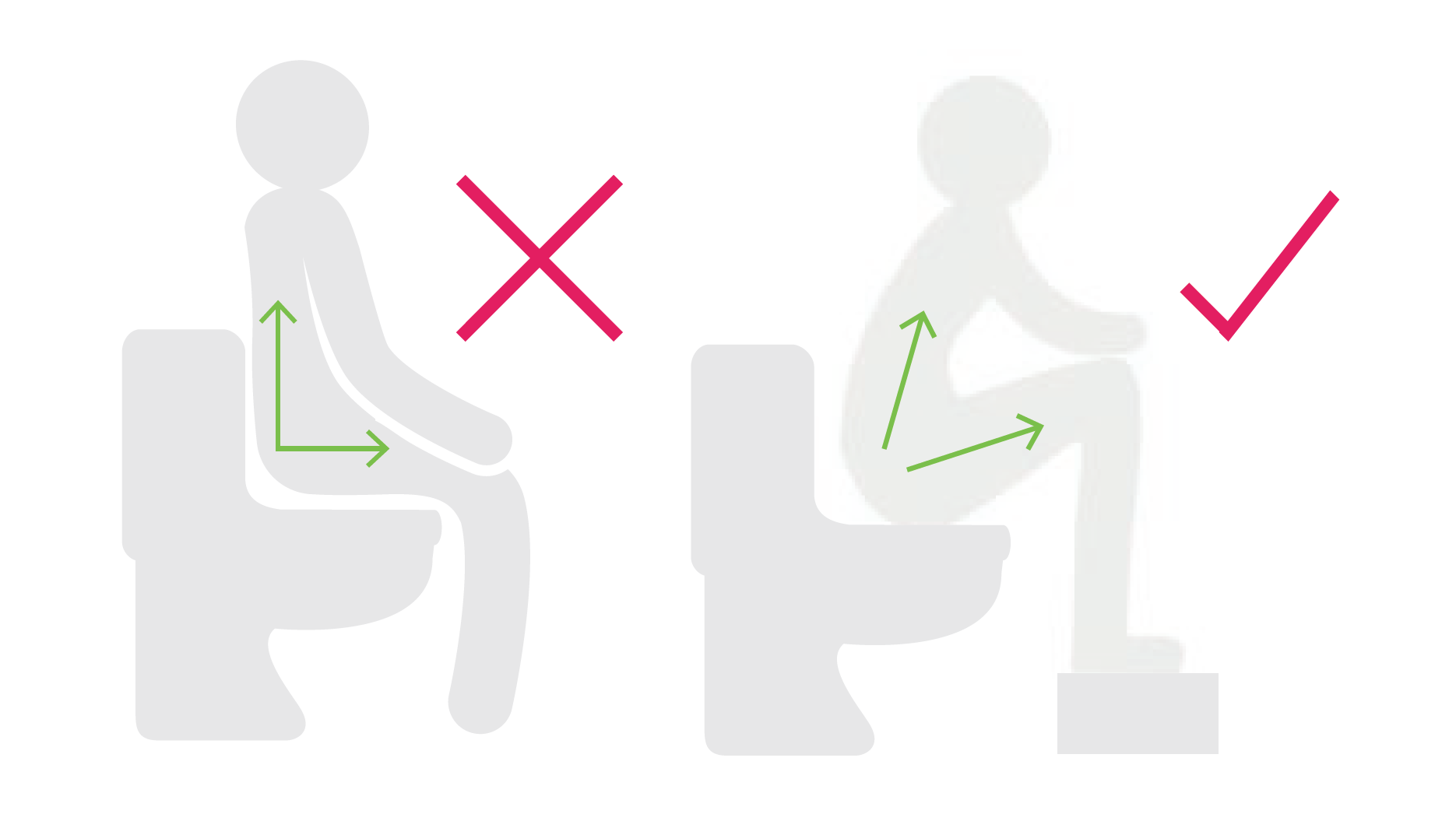 The human body is actually designed to poop in the squatting position, as this straightens out the bottom of the intestine and the anus (the exit point), allowing for a smooth departure without straining.
The human body is actually designed to poop in the squatting position, as this straightens out the bottom of the intestine and the anus (the exit point), allowing for a smooth departure without straining.
It may be no coincidence that countries with sitting toilets (much of the Western world) have been found to have an increased risk of pooping issues, such as constipation or incomplete evacuation (where you don’t feel like you’ve emptied your bowels properly).
To get your pooping position just right, make sure your knees are slightly higher than your hips, lean forward with your spine straight and relax your shoulders. An old shoe box or a foot stool should do the trick!
6. Identify your bloating triggers
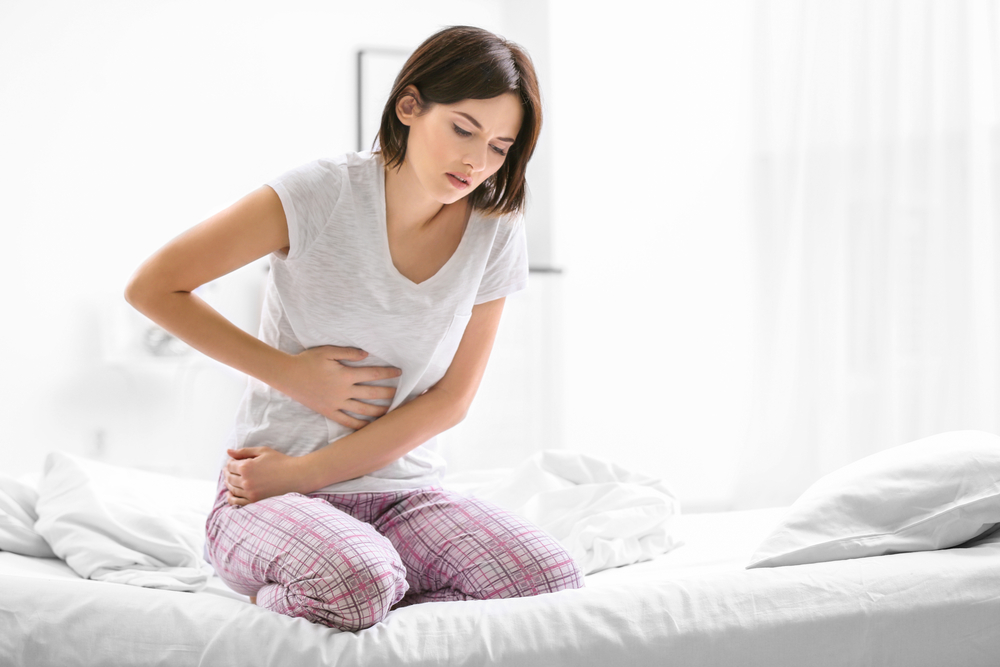 There is a myth that bloating is all down to what we eat. The truth is there is no single cause and there are many different triggers. Outside of food intolerances, I find it’s rarely the case that specific foods alone cause bloating. Stress, wearing tight clothes all day and lack of movement are common contributors – as well as HOW we eat.
There is a myth that bloating is all down to what we eat. The truth is there is no single cause and there are many different triggers. Outside of food intolerances, I find it’s rarely the case that specific foods alone cause bloating. Stress, wearing tight clothes all day and lack of movement are common contributors – as well as HOW we eat.
Before cutting out foods that are perfectly good for you because an online article said lentils or apples were the ‘biggest culprits,’ there are a bunch of simple things you can do to ease the bloat. These include checking for common food intolerances, splitting your food intake into smaller meals, chewing well, avoiding tight clothes and rewiring the gut:brain axis.
Rest assured, the occasional bloat is totally normal, especially after a heavy meal or extra fibre. In fact, a little bit of bloating after a high fibre meal is a good thing! It means your inner community of microbes are well-fed and doing their job.
7. Moderate your sugar intake
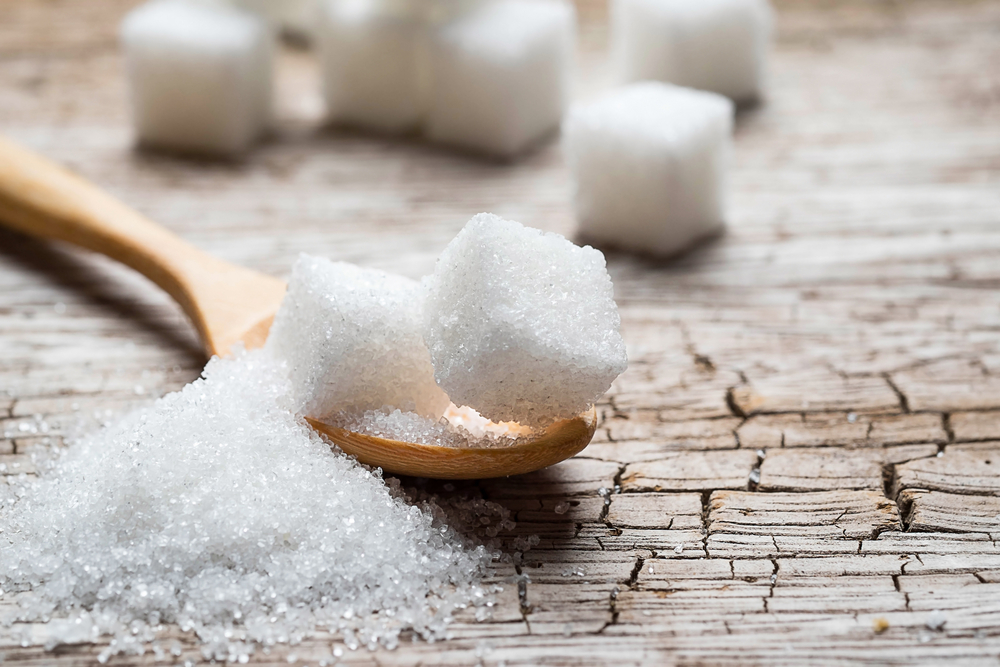 There is a myth that sugar is bad for your gut or ‘feeds “bad” bacteria’. When we eat sugar, it’s absorbed very high up in our intestine and most of the bacteria live in the lower part of the intestine, so the sugar doesn’t actually reach the bulk of our gut microbes. Therefore the sugar itself won’t be ‘harming’ your GM.
There is a myth that sugar is bad for your gut or ‘feeds “bad” bacteria’. When we eat sugar, it’s absorbed very high up in our intestine and most of the bacteria live in the lower part of the intestine, so the sugar doesn’t actually reach the bulk of our gut microbes. Therefore the sugar itself won’t be ‘harming’ your GM.
However, having lots of added sugar tends to mean you’re eating a lot of processed foods that aren’t high in dietary fibre (which feeds your gut microbes). Eating some sugar every now and again is completely fine, as long as you’re still getting plenty of dietary fibre.
8. Be cautious of food intolerance tests
 Unfortunately, scientists are yet to develop a suitable test for diagnosing food intolerances (with a breath test for lactose intolerance being the one exception). Despite this, a number of invalid tests have emerged selling nothing but pseudoscience, lacking both scientific evidence and clinical relevance. Find out more about this on my Education Hub here.
Unfortunately, scientists are yet to develop a suitable test for diagnosing food intolerances (with a breath test for lactose intolerance being the one exception). Despite this, a number of invalid tests have emerged selling nothing but pseudoscience, lacking both scientific evidence and clinical relevance. Find out more about this on my Education Hub here.
9. Combating constipation
 There are different types of constipation and it’s a good idea to identify the common culprits most relevant to you. These include low levels of physical activity, stress, poop anxiety, changes to routines, taking new medications or supplements, food choices and lack of fibre, or not drinking enough water.
There are different types of constipation and it’s a good idea to identify the common culprits most relevant to you. These include low levels of physical activity, stress, poop anxiety, changes to routines, taking new medications or supplements, food choices and lack of fibre, or not drinking enough water.
Top Tips to Combat Constipation
● Hydrate. Aim for at least 1.5-2 litres of water a day
● Fibre. Try to hit the recommended 30g of fibre every day, including wholegrain fibre.
● Prunes or green kiwi fruit. Studies show 100g prunes or 2 kiwis a day can help, so try starting with 1/2 portion for the first week to let your gut adjust.
● Exercise. Power walking can help stimulate your bowels.
● Morning routine. Give yourself 5-10 minutes to sit and relax on the toilet, without straining or pressuring your bowels. Listening to music or a mindfulness app can help to relax too.
10. Easing diarrhoea
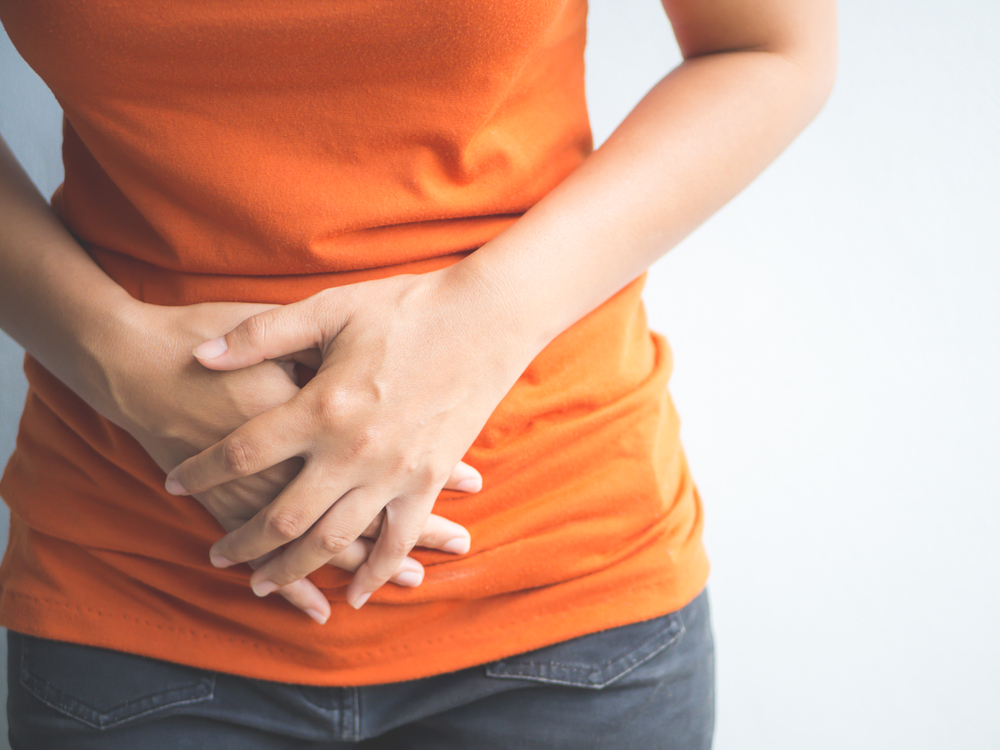 Loose or watery poop occurs when there is either too much fluid secreted into the intestine or not enough fluid reabsorbed into your body. There are two types: acute (short-term, caused by the invasion of unfriendly microbes) or chronic (longer-term).
Loose or watery poop occurs when there is either too much fluid secreted into the intestine or not enough fluid reabsorbed into your body. There are two types: acute (short-term, caused by the invasion of unfriendly microbes) or chronic (longer-term).
For acute diarrhoea, you’ll need to let your body process and get rid of the nasty invader, but you may get some relief and avoid making it worse by:
● Avoiding gut-stimulating food and drink, such as coffee, alcohol, high fat meals and chilli.
● Having six small meals, rather than three big ones. Smaller portions give your body time to digest and absorb properly.
● Stay away from chewing gum. It can contain sorbitol and xylitol, which are poorly absorbed by your gut and move down your intestine, fast, attracting more water as they go.
11. Overcome your pooping anxiety
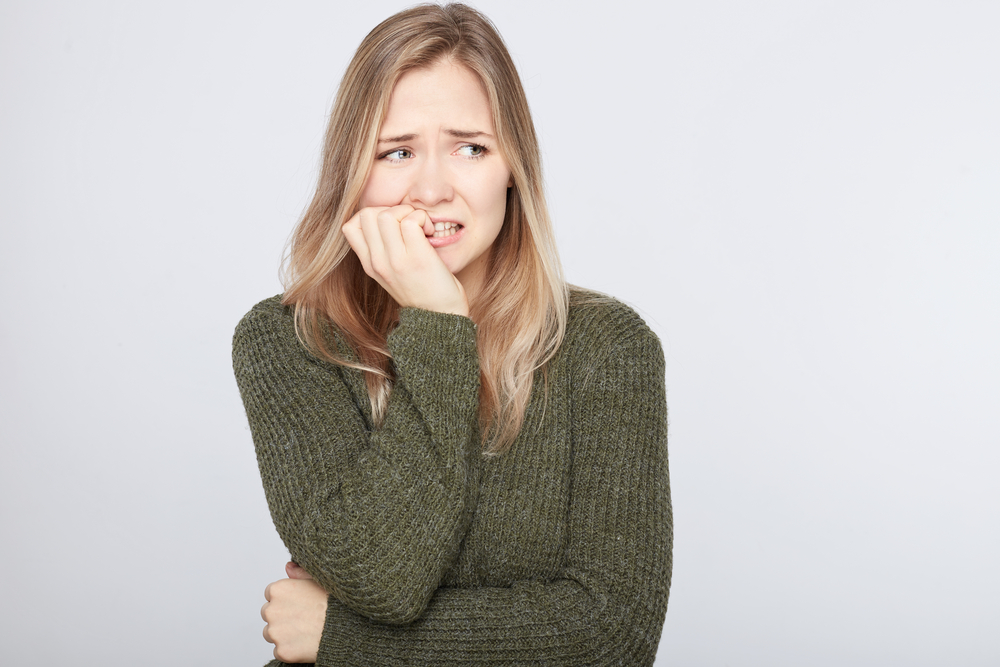 Like each of us, our bowels are unique and have their own ‘personality’ too. Some are pretty laid back and easy-going, while others can be a little more sensitive, shy and rely on routine. That’s why there’s no one strategy that suits all.
Like each of us, our bowels are unique and have their own ‘personality’ too. Some are pretty laid back and easy-going, while others can be a little more sensitive, shy and rely on routine. That’s why there’s no one strategy that suits all.
If you feel uneasy about ‘doing your thing’ while staying home with the family or housemates, or when you’re out of your comfort zone, you’re not alone. In my clinical practice, I’ve found that popping some Poo-Pourri spray (from £5.99) down the loo before you go to trap any smell can make people feel more comfortable. It has really helped some of my patients to reduce their anxiety and boost their bowel confidence.
12. What poo is normal?
 Your poo is one of the most underutilised tools to uncover what’s going on inside you and is an invaluable resource when it comes to assessing your gut health. It can also let you know when it might be time to visit your GP.
Your poo is one of the most underutilised tools to uncover what’s going on inside you and is an invaluable resource when it comes to assessing your gut health. It can also let you know when it might be time to visit your GP.
Inspecting every ‘delivery’ is certainly not required; instead, just keep an eye on what your average poop looks like. Most of us have at some stage experienced a bout of diarrhoea, or a bit of a funky coloured poop, and that’s usually OK. However, if it’s an ongoing issue that’s happening alongside other symptoms, that’s when it deserves further investigation.
In my book (Eat Yourself Healthy), I share an easy-to-follow assessment for checking in with your poop, looking at the frequency, colour, size and
consistency.



